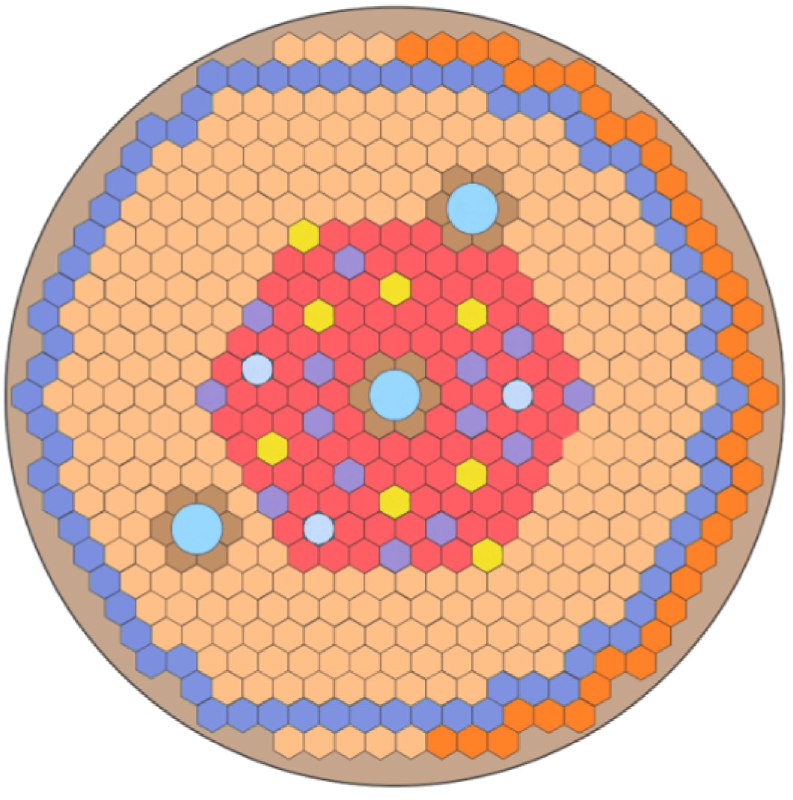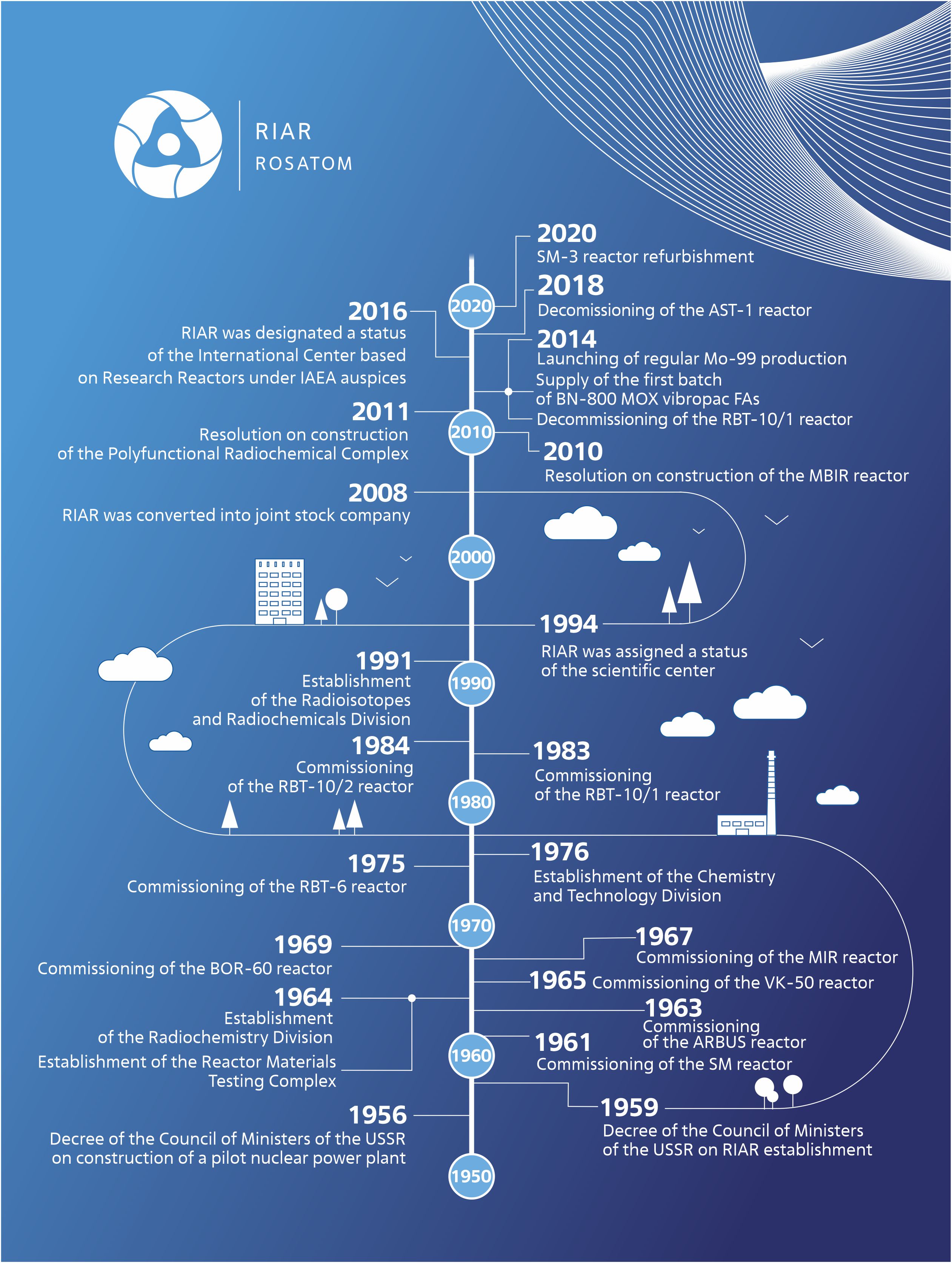MBIR reactor
will become one of the key elements in the renewal of the nuclear industry's experimental capabilities and the highest-precision research facility

MBIR - is the largest research reactor in operation and under construction on the planet and will provide the nuclear industry with a modern and technologically advanced research infrastructure for the next 50 years.
MBIR unique experimental and technological possibilities will allow to essentially expand directions of studies regarding grounds of concepts in two-component nuclear energetics and closure of fuel cycle, as well as significantly accelerate the creation of safe nuclear Generation IV power plants.
The exceptional physical characteristics of the MBIR reactor will be best suited for materials science experiments, development of new technologies for production of radioisotopes and modified materials, testing of fuel, new coolants and much more.
SPECIFICATIONS




EXPERIMENTAL CAPABILITIES

service
life
Pb/Pb-Bi
lant
NON-POWER APPLICATION

Meetings of the IRC MBIR Advisory Council specialized committee are held on a regular basis to develop the scientific research program of experimental research based on the MBIR reactor and broadly discuss the reactor's possibilities in non-power applications of nuclear technologies.
KEY MILESTONES OF THE PROJECT






RIAR REACTOR OPERATOR
JSC “SSC RIAR" is the largest research institute in Russia, one of the town-forming enterprises of Dimitrovgrad. The Institute operates 6 nuclear research reactors, Europe's largest complex for post-reactor studies of nuclear reactor cores, a complex of facilities for R&D in nuclear fuel cycle, a radiochemical complex, and a radioactive waste management complex.

